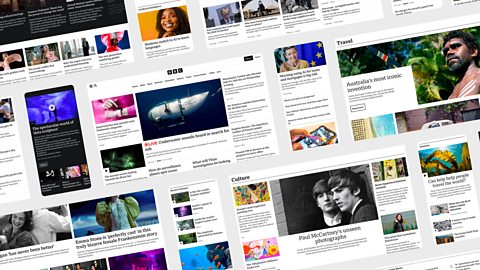Excitement About News Websites
Excitement About News Websites
Blog Article
Some Known Incorrect Statements About News Websites
Table of ContentsSome Known Questions About News Websites.The smart Trick of News Websites That Nobody is Talking AboutFascination About News WebsitesThe Basic Principles Of News Websites What Does News Websites Do?
It was down in the UK and Brazil but up some other countries, such as Greece, Bulgaria, and Poland (News Websites). This year, for the very first time, we inquired about the various manner ins which individuals prevent the information and discovered that around half of avoiders (53%) were trying to do so in a broad-brush or periodic way as an example, by switching off the radio when the information came on, or by scrolling past the news in social networkse.g. scrolling past news, changing networks when information comes on. of avoiders check resources much less usually. e.g. restriction to specific times of day, switching off alerts, etc. of avoiders stay clear of some subjects. e.g. topics that bring down state of mind or boost stress and anxiety. You stated that you try to proactively prevent news.

I'm possibly choosing to find out more light-hearted tales than I utilized to right now. M, 51, UK Turning my back on news is the only method I feel I can deal occasionally. I have to consciously make the initiative to turn away for my very own mental health and wellness.
An Unbiased View of News Websites
Discerning avoidance of Ukraine news was highest in much of the nations closest to the conflict, strengthening searchings for from our additional survey in 2015, right after the battle had actually begun. Our data may not recommend an absence of passion in Ukraine from nearby nations but instead a desire to manage time or protect psychological wellness from the very genuine scaries of battle.
Contrasting Finland with a politically polarised nation such as the USA (see following graph) that is less affected by the war, we find a very different pattern of topic avoidance. In the United States, we discover that consumers are more probable to stay clear of topics such as nationwide politics and social justice, where debates over issues such as gender, sexuality, and race have become highly politicised.
American politics are pretty toxic these days. I find in some cases that I have to disconnect from stories that simply make me mad. F, 61, USA For some individuals, bitter and dissentious political disputes are a reason to shut off news entirely, but also for some political partisans, avoidance is frequently about blocking out perspectives you don't wish to listen to.

Excitement About News Websites
Some are looking to make information much more accessible for hard-to-reach teams, broadening the news schedule, commissioning even more inspiring or positive information, or embracing useful or solutions journalism that provide individuals a sense of hope or personal firm. In our survey this year, we asked participants about their rate of interest in these various approaches.
This describes why tales like Ukraine or national politics do well with information regulars but can at the exact same time transform much less interested users away (News Websites). Careful avoiders are much less interested in my sources all sorts of information than non-avoiders yet in relative terms they do appear to be more thinking about favorable or solutions-based information

Some Ideas on News Websites You Should Know
2023). This may hold true in the moment, but over time it appears to be leaving many individuals empty and much less completely satisfied, which may be threatening our connection with and rely on the news. Throughout markets, overall trust fund in news (40%) and count on the sources individuals use themselves (46%) are down by an even more 2 percentage points this year.
With the rear-view mirror, the COVID-19 trust bump is clearly noticeable in the following chart, though the instructions of travel later on has actually been mixed. In some situations (e.g. Finland), the trust boost has actually been maintained, while in others the upturn looks even more like a spot in a story of continued long-lasting decrease.
A few of the highest possible reported levels of media criticism are discovered in nations with highest degree of suspect, such as Greece, the Philippines, the USA, France, and the United Kingdom. The least expensive degrees of media objection are frequently in those with greater levels of count on, such as Finland, Norway, Denmark, and Japan.
6 Simple Techniques For News Websites
This year we asked respondents concerning their choices for message, sound and video clip when consuming information online. Usually, we locate that the majority still choose to read the news (57%), as opposed to watch (30%) or pay attention to it (13%), however younger see this website people (under-35s) are more probable to pay attention (17%) than older groups.
Behind the standards we discover considerable and unexpected country distinctions. In markets with a strong reading custom, such as Finland and the United Kingdom, around eight in 10 still like to read online news, but in India and Thailand, around 4 in ten see post (40%) claim they like to view news online, and in the Philippines that percentage is over half (52%).
Report this page